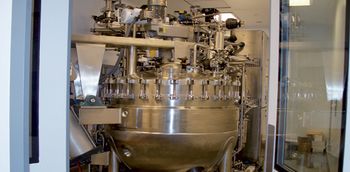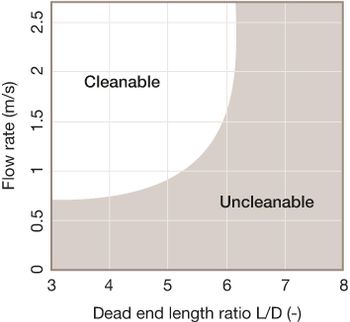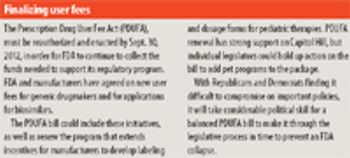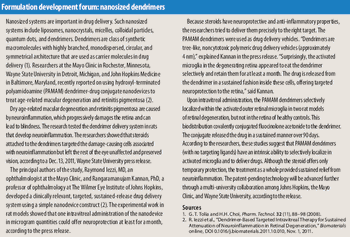
Experts discuss solutions for filter bacterial retention and related challenges. Contains online bonus material.

Experts discuss solutions for filter bacterial retention and related challenges. Contains online bonus material.

A technical forum featuring Catalent Pharma Solutions, SAFC, and Neuland Laboratories.

The scandal surrounding Servier's diabetes drug, Mediator, continues to unravel in France and could have implications for the whole pharmaceutical industry as the country scrutinises its regulatory systems.

This column will address some of the questions on how single use systems are sterilized by gamma irradiation and what documentation may be requested by regulators.

The author describes an equation that can be used to define the Quality relationship between a contract manufacturing organization and a client, including how to factor in both party's needs and regulatory commitments.

The author examines the opportunities and positioning of contract service providers.

We bring industry experts together to discuss the importance of self-administration and what injection technologies are best suited to this cause.

Understanding equipment design and product-contact surfaces enables strong cleaning action.

PharmTech's monthly newsletter, Equipment and Processing Report, reviews the Editor's Picks for the January 2012 edition from ACS Valves and Terra Universal.

The pharmaceutical industry has a history of developing innovative medicines and novel drug-delivery systems, but not all of its manufacturing processes use cutting-edge technologies. Demands to increase productivity in fill–finish lines are fueling the arguments of proponents of robotic automation to expedite manufacturing.

I work in a quality control laboratory and use a pH meter with a single-junction reference probe to test samples taken from various pharmaceutical (drug) production lines. The probe I use has a six-month warranty. It slowly stops working after just a couple weeks. I am replacing it once a month. We make sure to store it correctly according to the manufacturer's specifications and even use probe cleaner at the end of each shift to ensure that it stays clean. What can I do to increase the lifespan to at least cover the warranty period?

The US Pharmacopeia announced a draft standard containing best practices for ensuring that drugs can be traced to their original manufacturer, are not counterfeited or adulterated, and can be transported to their intended destination without compromising quality.

USP Releases Guidelines on Ensuring the Integrity of the Pharmaceutical Supply Chain.

The authors designed an upper punch with a removable punch tip to determine a tablet formulation's propensity to stick by weighing the mass of powder adhered to the punch tip.

The benefits of harmonization may be on industry's wish list, but buying into change is another story.

Recent legal decisions have further divided generic and brand manufacturer cases.

Challenges remain, particularly for early-stage biopharmaceutical companies.

Pressure to approve new user fees opens the door to action on drug shortages, prices, and regulation.

As part of the BRIC bloc with Russia, India, and China, Brazil is one of the world's leading emerging economies and is also considered by IMS Health to be one of seven pharmerging nations, which also include Mexico, Turkey, and South Korea.

Technology may expedite operations, but the absence of the human element could cost dearly.

To keep moving forward, the Pharmacopoeial Discussion Group needs industry participation.

Packaging innovations boost productivity, meet regulatory requirements, and protect products.

Some recent advances involve strategies for accelerating reaction discovery, approaches for inducing chirality and stereochemical analysis, and applications in nanotechnology for protein elucidation.

The European Union market takes steps toward continuous processing and modular facilities.

Copay coupons may help patients and drugmakers, but who ends up holding the bag?